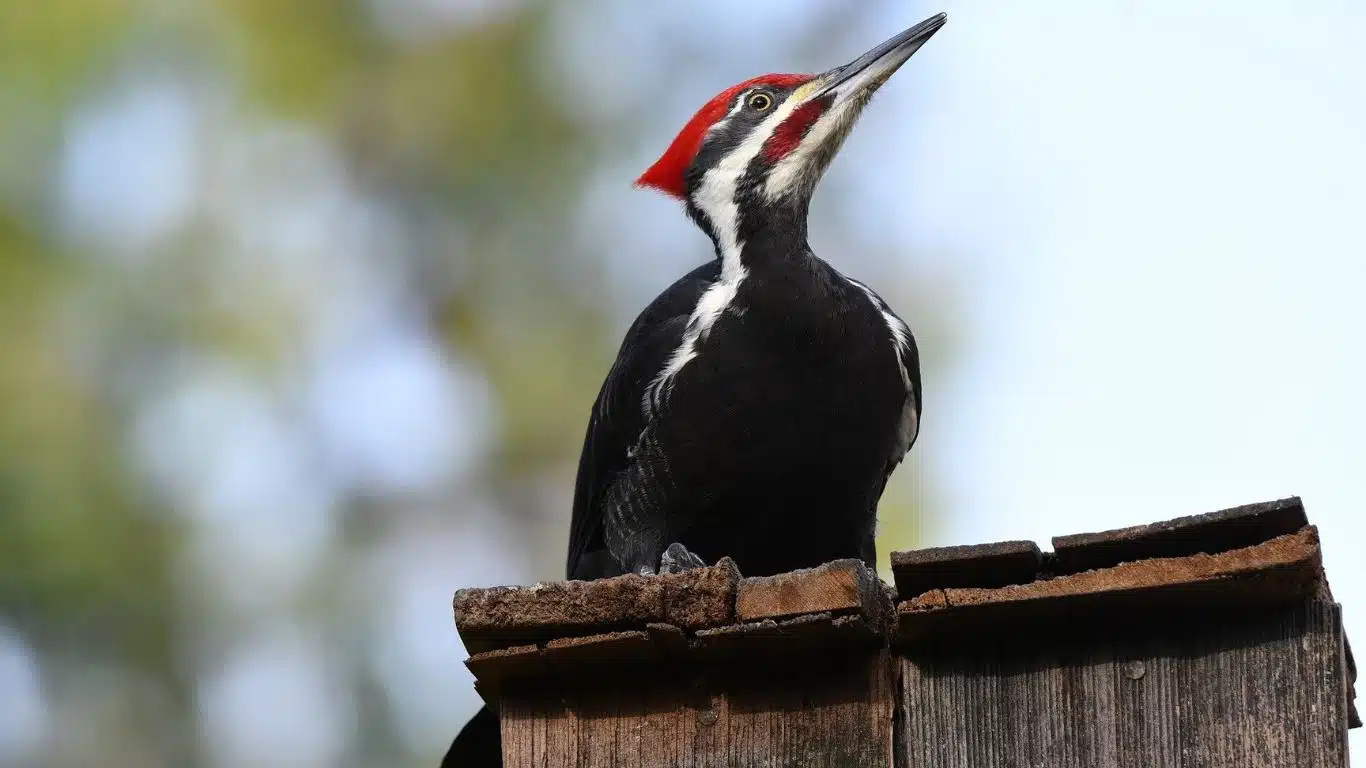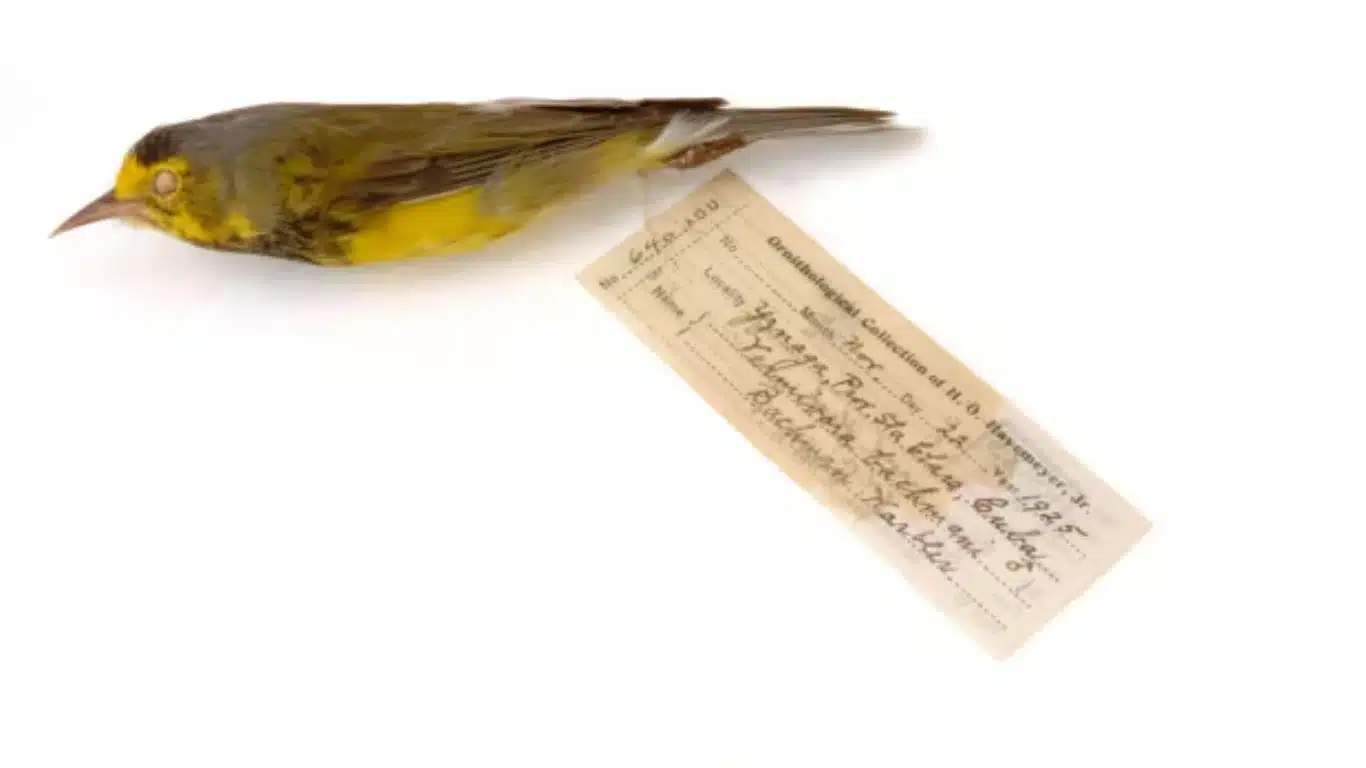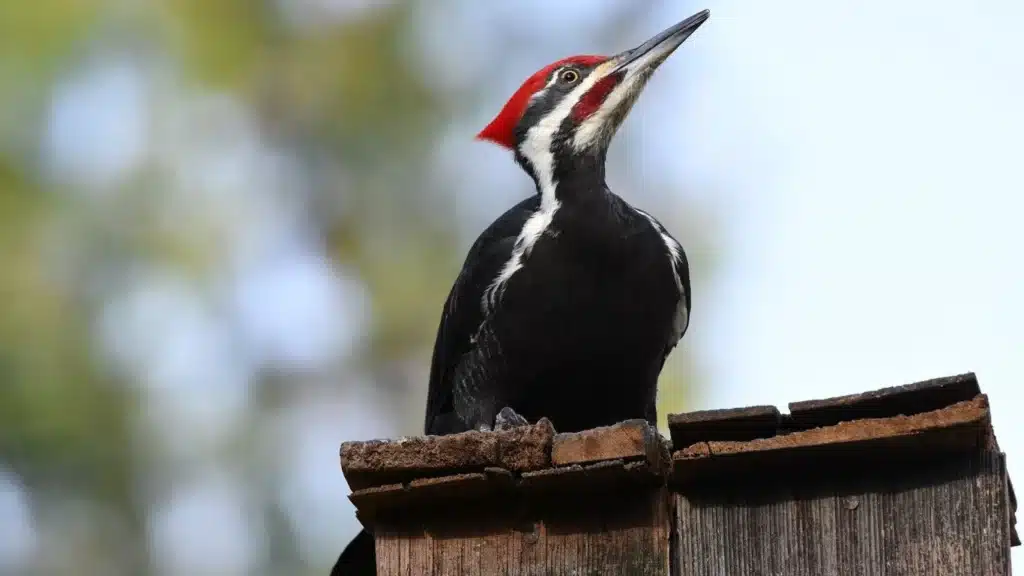Article written by Gloria Oladipo
Originally published by The Guardian (Tue, 17 Oct, 2023)
Wildlife advocacy groups stress ‘permanent’ consequences of failing to address biodiversity and climate
About 21 species have been removed from the US Endangered Species Act (ESA) after going extinct in a move conservationists are calling a wake-up call.
The US Fish and Wildlife Service removed the species – a mix of animals and plants – after determining that they had gone extinct, according to a press release.
Among the species that were delisted include the Bachman’s warbler, a bright yellow bird once common in Florida, South Carolina, and other southern states; eight types of southeastern mussels; and the Little Mariana fruit bat, a small fruit bat found in Guam.
Some species initially set for delisting have been spared. A Hawaiian herb known as Phyllostegia glabra var lanaiensis will remain after new surveying shows that new habitats may be suitable for the plant.
The ivory-billed woodpecker, once set for delisting, was also kept amid debate of its extinction status.
The move to delist the extinct species began in September 2021.
The US secretary of the interior, Deb Haaland, emphasized the importance of wildlife conservation in a 2021 statement, when the initial delisting process was proposed.
“With climate change and natural area loss pushing more and more species to the brink, now is the time to lift up proactive, collaborative and innovative efforts to save America’s wildlife,” Haaland said, highlighting the importance of the ESA.
Image Credit: Michael Doolittle
A majority of the species listed were included on the ESA in the 1970s and 1980s. Many species featured were already at extremely low numbers at the time of their listing – or possibly extinct entirely.
The latest news has raised concern with several wildlife advocacy groups.
Lindsay Rosa, vice-president of conservation research and innovation at Defenders of Wildlife, stressed the “permanent” consequences of failing to address issues around biodiversity and climate changes, in a statement shared with the Guardian.
“Extinction is a very real and permanent consequence of leaving the joint biodiversity and climate crises unhindered,” Rosa said.
Rosa added that the delisting announcement emphasizes the importance of using the ESA to benefit endangered species before it is too late.
In a press release, the Center for Biological Diversity lamented the loss of species that “can never be brought back”.
“My heart breaks over the loss of these 21 species,” said Noah Greenwald, endangered species director for the non-profit.
“Few people realize the extent to which the crises of extinction and climate change are deeply intertwined,” Greenwald added. “Both threaten to undo our very way of life, leaving our children with a considerably poorer planet.”






